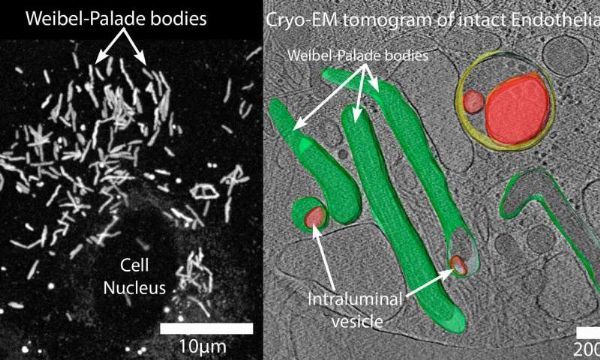A Study Published on Blood Reveals New Ways of Cell Communication
Cell biology scientists are very interested in small lipid vesicles called extracellular vesicles produced by cells, which have been found to mediate cell-to-cell communication. Recently, professor Tom Carter's group has discovered a new pathway for vascular endothelial cells to store and release extracellular vesicles. The team worked with Dr. Peter Rosenthal of the Francis Crick Institute to focus on a special extracellular vesicle called exosomes. Related research results were published in the Journal of Blood.
Exosomes can be released into the blood or other tissues through a process called efflux, where exosomes can mediate communication between cells.
Professor Carter's team found that the Weibel-Palade body (WPB) efflux process also releases exosomes. WPBs are a special secretory granule containing clotting factors, von Willebrand factor and a series of pre-inflammatory factors involved in combating infection. The structure of exosomes from WPBs differs from the structure of other exosomes, suggesting that this exosomes may be released into the circulatory system and may have other special functions. Researchers are currently trying to find the special functions of these exosomes.
Professor Carter said, ‘We have discovered lipid vesicles in WPBs through advanced cryo-electron tomography. Meanwhile, high-speed fluorescence imaging was used to directly observe the WPB internal vesicles of living endothelial cells and their release as exosomes.’
Reference
- Streetley et al. Stimulated release of intraluminal vesicles from Weibel-Palade bodies, Blood, 2019.


Your email address will not be published. Required fields are marked *